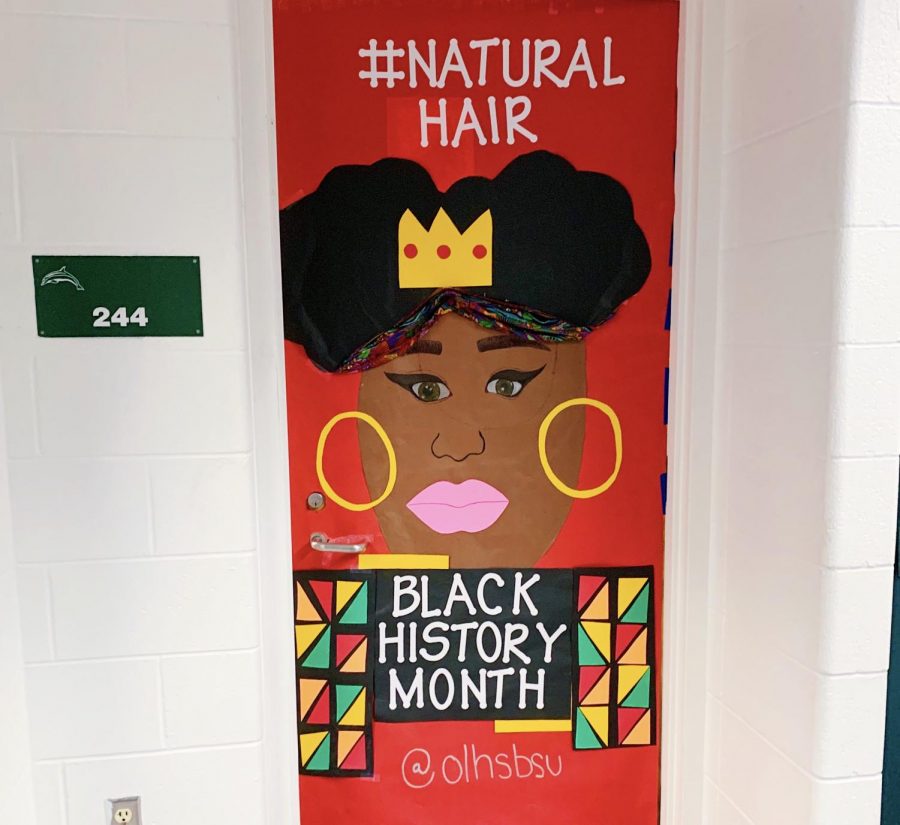Black History Month, a time to honor culture
Señora Rosado’s door, 244, was decorated by the Black Student Union to represent the importance of the natural hair movement in black culture. Photo taken on Feb. 10.
February 19, 2020
Black History Month is a time for the remembrance, resilience, and perseverance of black culture.
“Black History Month means looking into the challenges faced by black people, the history we’ve overcome to get to where we are today,” said sophomore Chelsea Agyei.
During the first two weeks of February, administration held a door decorating contest throughout the building to honor either an achievement, individual, group, movement, or issue that affects Black Americans. One door decorated by the Black Student Union showcased the beauty of the natural hair movement.
“Black student union decorated Señora Rosado’s door, 244, and we were able to emphasize the importance and beauty of natural hair,” said Chelsea.
In recent history, black women hold a title in each major world title, with three queens who wore their natural hair in the contests: Miss Teen USA, Miss USA, and Miss Universe.
“This year we’ve had five beauty queens that are black, and as a black girl, I didn’t really have a lot of role models to look up to, so it is really cool to see them up there on TV doing their thing, winning, and owning their beauty,” said Chelsea, who is the vice president of Black Student Union.
“I’ve been doing a trivia game on @olhsbsu’s Instagram story, and running the trivia game has helped me learn so much that I didn’t learn in school like Claudette Colvin; a couple of months before the Rosa Parks situation, she did the same thing, and it allowed me to research and learn so much more about black history,” said Chelsea.
Any education in black history can showcase and highlight important parts of history that might otherwise be overlooked in school.
“I think that we should learn black history every month, not just February,” said Chelsea.
As a Ghanian-American, Black History Month is different for Chelsea because her tie to a background of African culture is different from a black person with no ties to Africa.
“I get to embrace it and learn more about it, but I get to add my own culture to it, and since the roots are from Africa, I get to bring in what I know, so people can learn something new,” said Chelsea.


